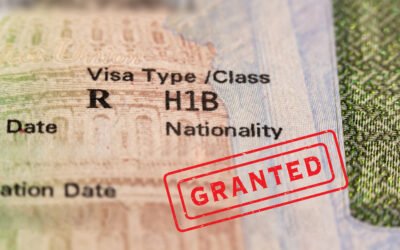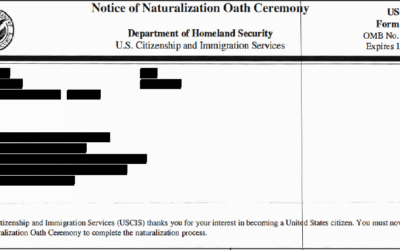Under the 14th Amendment to the U.S. Constitution, “all persons born or naturalized in the United States … are citizens of the United States.”[i] Citizenship by birth also includes persons born in certain territories under U.S. control, i.e., Puerto Rico.[ii]
Although the United States is defined as “the several States, the District of Columbia, Puerto Rico, the Virgin Islands, Guam, American Samoa, Swains Island, the Commonwealth of the Northern Mariana Islands (beginning November 28, 2009), and all other territory and waters, continental and insular, subject to the jurisdiction of the United States”[iii], absent a congressional statute (such as the case with Puerto Rico) persons born in the aforementioned locations are considered “nationals” of the United States as opposed to U.S. citizens.[iv]
Birth Abroad in Wedlock to a U.S. Citizen Parent
A child born in wedlock to one or two U.S. Citizen parents outside of the United States and its outlying possessions may acquire U.S. citizenship at birth if:
Two U.S. Citizen Parents: One parent had residence in the United States or one of its outlying possessions prior to the child’s birth.[v]
One U.S. Citizen Parent and One U.S. National Parent: U.S. Citizen parent was physically present in the United States or one of its outlying possessions for a continuous period of one (1) year prior to the child’s birth.[vi]
One U.S. Citizen Parent and One Alien Parent: U.S. Citizen parent was physically present in the United States or its outlying possessions for a period or periods totaling not less than five (5) years, at least two of which were after attaining the age of fourteen.[vii]*
* A person born abroad in wedlock to a U.S. citizen parent and an alien parent between December 24, 1953 and November 14, 1986 acquires U.S. citizenship at birth if the U.S. citizen parent was physically present in the United States or one of its outlying possessions for ten (10) years prior to the person’s birth, at least five (5) of which were after the age of fourteen (14).
Birth Abroad Out-of-Wedlock to a U.S. Citizen Parent
Acquisition of citizenship for a child born out-of-wedlock is provided for under INA §309, 8 USC §1409.
Birth Abroad Out-of-Wedlock to a U.S. Citizen Father
A person born abroad out-of-wedlock to a U.S. citizen father may acquire U.S. citizenship under Section 301(c) or 301(g) of the INA if:
A blood relationship between the person and the father is established by clear and convincing evidence;
The father had the nationality of the United States at the time of the person’s birth;
The father (unless deceased) has agreed in writing to provide financial support for the person until the person reaches the age of 18 years, and
While the person is under the age of 18 years –
A. The person is legitimated under the law of his/her residence or domicile,
B. The father acknowledges paternity of the person in writing under oath, or
C. The paternity of the person is established by adjudication of a competent court [viii]
Birth Abroad Out-of-Wedlock to a U.S. Citizen Mother:
Born on or After June 12, 2017
A child born abroad out-of-wedlock to a U.S. citizen mother and alien father on or after June 12, 2017, may acquire U.S. citizenship at birth if the mother was a U.S. citizen at the time of the person’s birth and was physically present in the United States or one of its outlying possessions for a period of five (5) years, two (2) after the age of fourteen.[ix]
Born on or Before June 11, 2017
A child born abroad out-of-wedlock to a U.S. citizen mother and alien father on or before June 11, 2017, may acquire U.S. citizenship under Section 309(c) of the INA if the mother was a U.S. citizen at the time of the child’s birth and if the mother was physically present in the United States or one of its outlying possessions for a continuous period of one (1) year prior to the child’s birth.[x]
A child who acquires citizenship at birth does not need a certificate of citizenship.[xi]
If you have questions about birthright citizenship and whether you, or someone you know, acquired citizenship at birth, contact Lally Immigration Services, LLC at (617) 870-1000 or by email to [email protected].
[i] U.S. Const. amend. XIV.
[ii] INA § 302.
[iii] 8 CFR § 215.1(e).
[iv] Tuaua v. U.S., 788 F.3d 300 (D.C. Cir 2015).
[v] 8 USC § 1401(c).
[vi] 8 USC § 1401(d).
[vii] 8 USC § 1401(g).
[viii] INA § 309, 8 USC § 1409.
[ix] INA § 301(g).
[x] 12 USCIS-PM, Pt. H, Ch. 3.
[xi] U.S. v. Smith-Balthier, 424 F.3d 913, 920-21 (9th Cir. 2005).





